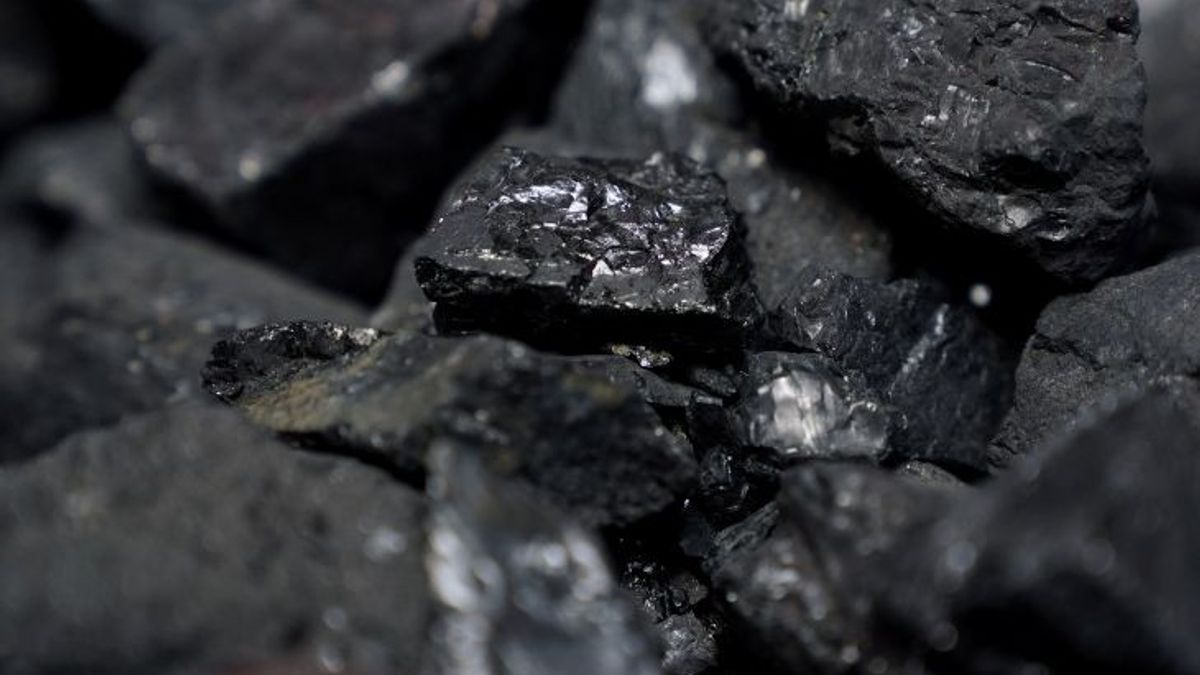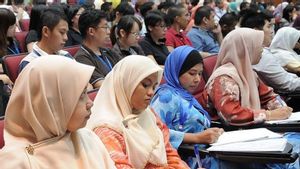JAKARTA - The Indonesian Coal Mining Association (APBI) noted that carbon trading in Indonesia can penetrate US$300 billion or around Rp.4,625 trillion (assuming the JISDOR BI exchange rate of Rp. 15,418 per dollar) per year, which comes from activities to replant deforestation to the use of new and renewable energy (EBT).
One company that will record a profit from carbon trading, PT Pertamina Geothermal Energy Tbk (PGEO) has a new income post from the proceeds of carbon trading.
Finance Director of PT Pertamina Geothermal Energy Tbk Nelwin Aldriansyah stated that the company has made an energy transition by obtaining certification from various credit carbon institutions so that PGE has the right to monetize the sale of carbon credit from PGE operations.
"For the first time in 2022, Pertamina Geothermal Energy (PGE) recorded a new income post from the sale of carbon credit," he said in his statement, Monday, March 20.
Nelwin said the Ministry of Energy and Mineral Resources (ESDM) had also officially launched carbon trading, where starting in 2023-202, carbon trading will be carried out in a mandatory power generation sub-sector.
Carbon trading is carried out in coal steam power generation units (PLTU) connected to the PT PLN (Persero) power grid with a capacity greater than 100 MW.
The carbon trade itself is implemented through 2 mechanisms, namely emission trading and offset emissions.
"A number of monetization strategies and efforts continue to be carried out by PGEO to keep financial performance solid by, for example, maintaining revenue, margin EBITDA and profit margins that are stable to maintained debt ratios," he continued.
On a separate occasion, Deputy Minister of SOEs I Pahala Mansury has also repeatedly said that he is encouraging SOEs to start trading carbon, carbon credit (carbon credit) buying activities, where buyers produce carbon emissions that exceed the set limits. Carbon credit is a representation of the right for a company to issue a number of carbon emissions or other greenhouse gases in its industrial process. One unit of carbon credit is equivalent to a reduction in emissions of 1 tonne of carbon dioxide (CO2).
It should be noted that the Nationally Determined Contribution (NDC) is the commitment of each country to the Paris Agreement to reduce carbon emissions in their respective countries.
In the 2021 NDC document, through the long term strategy low carbon and climate resilience (LTS LTCCR), Indonesia has also committed to achieving Net Zero Emission (NZE) in 2060. Palala added, there are many standard rankings in carbon assessment.
However, what is most done is the carbon standard applied by Verra.
The value of carbon offsets traded is around USD 20-40. SOEs can conduct trials at half the price as a reference. Regarding the value of the carbon economy, Pahala explained, most likely the value is between USD 2 and 3.
The value of the Carbon Economy (NEK) is the value given to each unit of carbon emissions.
NEK is considered important to be held because it can encourage green investment in Indonesia.
In addition, NEK can also overcome climate change financing gaps that have occurred so far. Palala revealed, SOEs are asked to seriously start making energy transitions in various ways such as synergies and collaborations. "We see collaboration between SOEs themselves to build cooperation in producing energy and reducing emissions can be done. Our SOEs can also cooperate with other countries. In essence, how SOEs can jointly carry out energy transitions," explained Pahala.
The English, Chinese, Japanese, Arabic, and French versions are automatically generated by the AI. So there may still be inaccuracies in translating, please always see Indonesian as our main language. (system supported by DigitalSiber.id)








